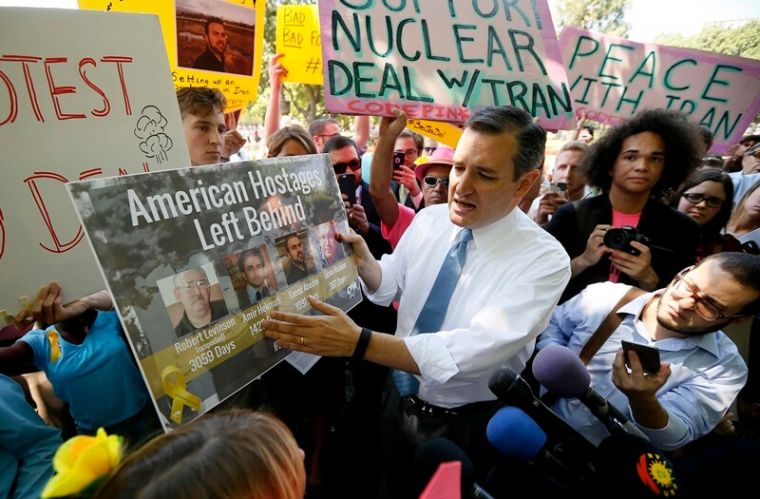Iran dictating nuke deal terms? UN seen yielding to Tehran's soil sample demand

In a move that could further infuriate critics of the nuclear deal it reached with six world powers, the Iranian government appeared to be dictating its own terms on the deal, reportedly demanding that its own officials take soil samples from an alleged nuclear site. Worse, pundits said Tehran may get what it wants.
This was one of the concerns raised by the Republican majority in the US Congress as the White House attempts to gather support for the landmark nuclear accord, Fox News said.
The probe supposedly to be conducted by the International Atomic Energy Agency (IAEA) into Iran's Parchin military complex, which is suspected to be a nuclear site, is included in the nuclear agreement ironed out between Iran and the major world powers.
Iran allegedly experimented at Parchin on how to activate a nuclear weapon, an accusation that Tehran has denied. However, in a bid to reach an agreement with the world powers, Tehran eventually agreed to work with the IAEA in investigating the suspected nuclear site.
Officials confirmed that the United Nations may indeed accept Iran's terms as long as IAEA representatives are allowed to monitor the process of collecting soil samples.
Tehran did not say why it would want to take its own soil samples and not allow the UN atomic agency to do it.
Sen. James Risch (R., Idaho) said in a Senate Foreign Relations hearing that Iran would be the one to gather samples from its military complex for later turnover to nuclear inspectors for testing.
"Let me tell you the worst thing about Parchin. What you guys agreed to was, we can't even take samples there. IAEA can't take samples there. They're going to be able to test by themselves," said Risch.
Chairman Ed Royce (R-California) pointed out that "Iran has cheated on every agreement they've signed," and doubted the deal is "verifiable" or "enforceable."
Secretary of State John Kerry hit back against allegations that the deal would relax economic sanctions forever, in return for temporary concessions on the development of nuclear weapons.
Kerry maintained that following the deal, Iran is "permanently banned" from creating a new weapon and that many of the limitations imposed would be in place "not just for 15 or 20 years, but for the lifetime."











